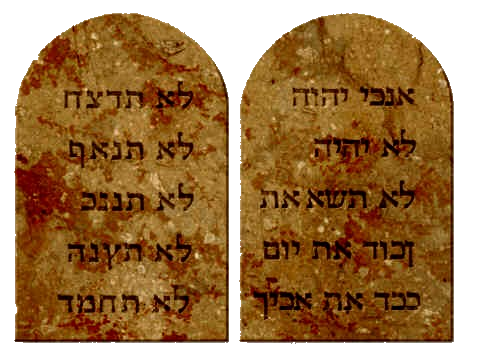by George Gunn
– The question of Sabbath observance often comes up A full answer to this question could get quite long. Here’s the short version. There are several things to keep in mind regarding the Sabbath:
- The first reference to the Sabbath, Genesis 2:2-3 says nothing about man keeping the Sabbath, only that God rested on this day, and that He sanctified it. Some people read a lot of things into that word “sanctified.” But the word simply means “set apart.” The seventh day was “set apart” from the others, because on that day, God did not work; whereas on the other six days God brought the universe and all life into existence.
- There is no evidence in Scripture that any people kept any kind of Sabbath observance between Adam and Moses. There is not one word in Scripture anywhere that suggests that the Sabbath was observed by Adam, Seth, Enoch, Methuselah, Noah, Shem, Abraham, Isaac, or Jacob.
- The first time we read about man observing the Sabbath is when God brings Israel out of Egyptian bondage and is preparing to give them the law, Exodus 16:23-29. In that passage it says specifically that God was giving the Sabbath to Israel (verse 29). Other verses, indicate that the Sabbath was a sign of God’s covenant relationship with the nation of Israel (Exod. 31:13, 17; Ezekiel 20:12, 20). In this respect, Sabbath observance is parallel to circumcision which was also a sign of God’s covenant with Israel. The difference between these two signs is that whereas circumcision is a private sign out of public view, Sabbath observance is very public and obvious to all who observed Israel. Israel’s covenant is not my covenant. The Church, the Body and Bride of Christ, is distinct and separate from Israel. God’s specific instructions for the church are given in the New Testament epistles, and there is not one word of instruction in the epistles for the church to observe the Sabbath. On the contrary, as you noted, we are instructed not to judge one another on the basis of Sabbath observance (Col. 2:16), and Paul was deeply concerned about the Galatian Christians because they thought they had to observe special days (Galatians 4:9-11).
- The Sabbath Day was not intended to be a day of worship, even when rightly observed by Israel. It was a day of rest, not of worship. Now, of course, God should be worshiped every day. But the public worship of Israel focused around their observance of the major feast days throughout the year, as well as the one fast day, the Day of Atonement. The Sabbath, on the other hand, was a day for them to rest from their labors, and was a testimony to the rest of the world that God would provide for their needs when they rested one day in obedience to His command for them.
- The New Testament does not substitute Sunday in place of the Sabbath day. The early church did tend to worship publicly on the first day of the week (Acts 20:6-7: 1 Cor. 16:2; Rev. 1:10), but it was a day of worship, not a day of rest, and it was never commanded to be the official day of worship. It was chosen because Christ arose from the dead on the first day of the week. But churches are free to assemble on any day they want; that’s the point of Colossians 2:16. They can even meet on Saturday, as long as it is not made into a legal requirement.
